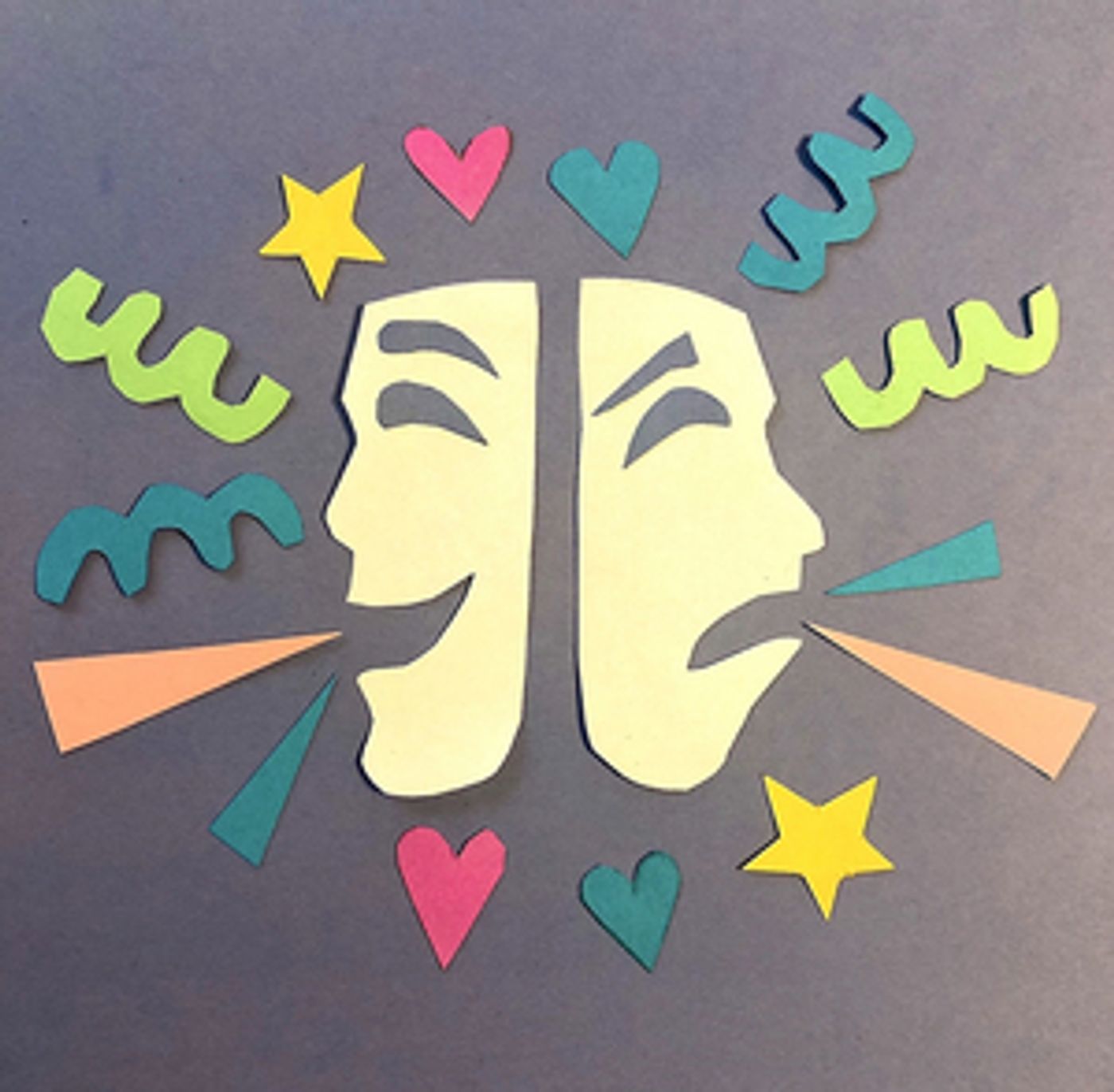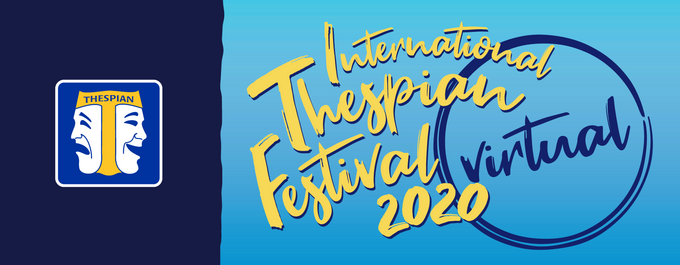BWW Blog: International Thespian Festival - Life Lessons from the Pros

Every year over 2,000 Thespians come together with artists, educators, and professionals at the International Thespian Festival. The International Thespian Festival, or "ITF," is known as "the summer's premier teen theatre festival." Thanks to Broadway World, I was given the opportunity to attend this impressive online festival and participate in some of the over fifty workshops that the festival had to offer.
Much of the advice that was given at the workshops is applicable, not only to high school Thespians, but rather to all theatre-makers.
The information shared is universal. Some of these workshops were synchronous, and some were pre-recorded, but all of them provided information that was equal parts inspiring and educational. I have summarized my hours of workshop attendance into 10 things I learned.
1. Determine what you love, and find out how to make it your career.
In "Non-Performance Careers in the Theatre," the Broadway League's Rachel Reiner said, "If you are meant to do it, if it's in your soul... just find a way." Sometimes we don't know how to combine our passion and our skillset into One Dream job. Ms. Reiner shared careers.broadway, which is an excellent website for discovering jobs in theatre that you might not have known existed.
2. "Work begets work," so get started on your craft.
In "The Art of the Audition for Actors and Director," Roger DelPozo of the New York Film Academy imparted valuable information, including the phrase above. It is important to remember that we must continuously be honing our craft in order to book work. Mr. DelPozo also said, "You really have to love [your craft] and work on it, because the competition does."
3. Don't be afraid to start; having something is better than being left with nothing.
In "The Job Market: Branding Yourself," Temple University's Matthew Miller reminded the attendees that one must begin in order to ever succeed. In reference to the "daunting" resume, Mr. Miller encouraged young artists by stating, "Don't be afraid to start a resume," even if you only have a few things to put on it. One must never be ashamed to be a beginner, because at one point, we all were.
4. All bodies are different, so celebrate yours.
Body-positivity was not something one expected to learn by attending Aretta Baumgartner's "Puppetry 101" workshop. However, not only did she teach the basics of puppetry, the Center for Puppetry Arts' Mrs. Baumgartner continuously drew attention to the fact that all bodies are beautiful and will move differently. Throughout the workshop attendees were encouraged to celebrate my "own one-of-a-kind theatre-making vessel."
5. "Be kind to the people you are working with, but also be kind to yourself."
Nate Netzley from Concord Theatricals shared many pieces of spectacular advice in "So, You Want to Direct: A Student's Guide." After laying out the practical parts of directing, Mr. Netzley went on to emphasize how important it is to not only treat others with respect, but also treat yourself with respect. He stated, "Remind yourself that nothing is ever done on the first try."
6. Begin with the facts, because that allows you to see the big picture.
While this advice is very universal, it was given by Christine Hopkins in the workshop "Keep it 100: Critiquing in a True and Respectful Way." Mrs. Hopkins, from Booker Middle School, laid the foundations on how to write a good critique. She explained that starting with the facts is important, because one won't be respected for their opinion if they don't know the facts.
7. Be open to learning new things about familiar subjects.
As a college student in a BFA program, I didn't think I would learn much from Jeff Cochran' workshop titled "BA vs BFA vs Conservatory." However, Oklahoma City University's Professor Cochran imparted new information about a subject I thought I understood. One should always be open to learning and willing to listen. Ultimately, that's what makes a good theatre-maker.
8. Always be prepared; you never know who you might meet.
"The Job Market: Branding Yourself" led by Matthew Miller taught many practical skills, including to always have an "elevator speech" prepared. It's important to know who you are and be able to articulate that in 10 to 15 seconds, because a quick, memorable introduction might get you a job down the road. In the theatre world, connections are everything, so one must know how to effectively make them.
9. "Finish with [your] fear," and then do your thing.
In "Joy of Failure," a clown and a lion taught me much about working through fear. Russ Sharek of the Circus Freaks emphasized that when we pretend our fear isn't there, we are lying to ourselves. The solution to fear is to let it run its course and then go out and make the thing happen. As a clown, Mr. Sharek also shared that humor is an excellent way to approach fear and failure.
10. Trust that you are enough inside and outside of the audition room.
Roger DelPozo led a workshop titled "The Art of the Audition for Actors and Directors," in which he inspired confidence into young actors. Mr. DelPozo states, "Trust that you are interesting enough and that your perspective is enough." Ultimately, Mr. DelPozo believes that in order to be successful, young actors should put forward the most authentic version of themselves in an audition room, as well as in life.
In conclusion, attending the International Thespian Festival gave me much to reflect on and inspired me to create, as well. ITF was a wonderful opportunity to listen to educators, artists, and professionals currently working in the field that I hope to one day join. I encourage you to also seek out opportunities to learn, such as conferences, workshops, and classes. After all, as theatre-makers, we should strive to be lifelong learners.

Videos


